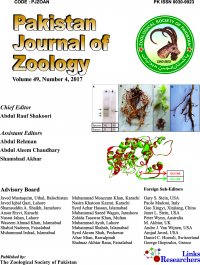The rice weevil, Sitophilus oryzae (Coleoptera: Curculionidae), is an important pest of stored grains including wheat, maize and rice. Although insecticides are used for the management of this pest, successful management could be compromised by prevailing environmental temperature since it has a significant effect on the toxicities of insecticides. The focus of the present study was to evaluate the effect of post-treatment temperature on the toxicity of four insecticides viz., spinosad, emamectin benzoate, lufenuron and thiamethoxam. For this purpose, toxicities of insecticides were tested at three different temperatures 20°C, 25°C and 30°C, on whole wheat grains which was artificially infested with S. oryzae under laboratory conditions. The toxicities of spinosad, emamectin benzoate, lufenuron and thiamethoxam increased 2.65, 1.59, 1.64 and 3.00 folds (positive temperature coefficient), respectively, with increasing temperature. The positive temperature coefficients of all the tested insecticides suggest that these insecticides may provide effective control of rice weevils under high temperature conditions.









